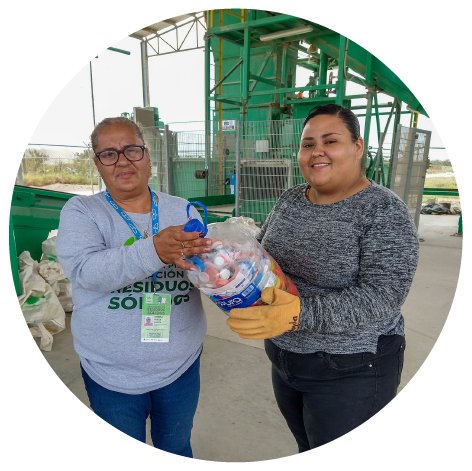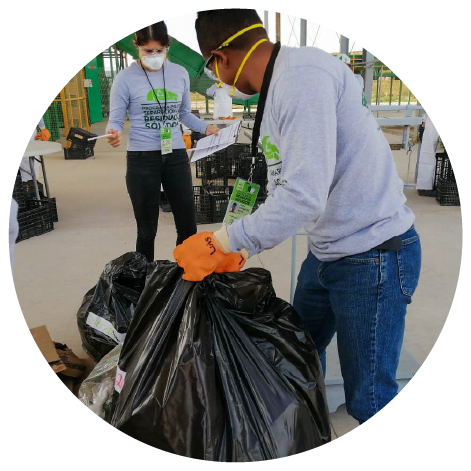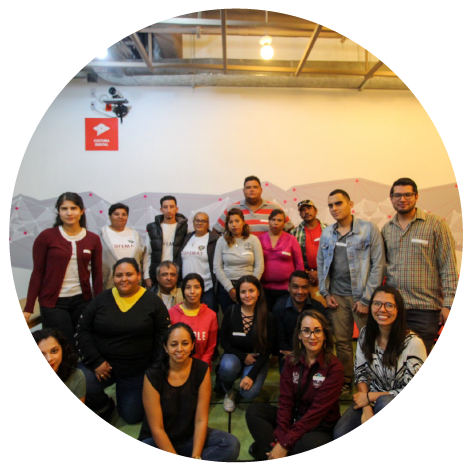Ponguinguiola has developed trash separation programs since 2005, attaining the participation of educational centers and responsible citizens. We recognize the need to reduce and implement a solid waste management plan, given that the landfills that are currently being used lack compliance with basic maintenance regulations and therefore do not satisfy the appropriate conditions for trash disposal in the state of Baja California Sur.
Pilot Program for Urban Solid Waste Separation (PPSRSU)
The municipality of La Paz, Baja California Sur has experienced a steep population increase in the past few years, and with it a concordant increase in the amount of waste generated. To be able to have a better process for managing this waste, a trash separation pilot program was launched.
The general objective of this program is to implement the separation of waste within three different socioeconomic strata, to find out the quantities of Urban Solid Waste (RSU) that are being disposed of, and to learn the adaptation process in the city’s waste separation. The program’s specific objectives are:
- Find out what quantity of Urban Solid Waste is being generated in the city of La Paz, in the three different social strata (high-income, middle-income, and low-income) according to the National Population Council (CONAPO).
- Define what type of infrastructure is needed for appropriate waste management of the Urban Solid Waste.
- Learn strategies for promoting the use and valuing of Urban Solid Waste for better landfill operation.
- Propose strategies to raise awareness, train, and inform the citizens about correct waste separation.
The pilot program was rolled out with 45 families from the city of La Paz, distributed by socioeconomic strata:
- High socioeconomic strata (15 families in the Fidepaz neighborhood)
- Middle socioeconomic strata (15 families in the Miramar neighborhood)
- Low socioeconomic strata (15 families in the Márquez de León neighborhood)
These groups of 15 families per neighborhood were further divided into 5 families who separated organic, inorganic, and hygienic waste, and 10 families who did not separate their waste. The participating families were given bags with codes in order to create the final tally.
The trash collection began on January 13th, 2020 and concluded on March 7th of the same year. It was sustained by a Public Services vehicle which exclusively serviced waste from the involved homes. The waste was subsequently delivered to the landfill where it was received by a group of people who were trained to classify the waste into 7 different categories:
- Garden and wood
- Plastics: PET, styrofoam, and high-density plastics.
- Metales: aluminum and cans
- Food scraps
- Hazardous: sanitary products, medications, syringes, and other hazardous materials requiring special handling
- Glass and ceramics.
- Fibers: paper, cardboard, and clothFibers: paper, cardboard, and cloth
Upon completing the collection period, data analysis began to draw conclusions about what dynamics exist between the type and kind of waste that is being produced within each socioeconomic stratum. To carry out this pilot program, we had the help of staff from Municipal Public Services, Maritime Terrestrial Zone (ZOFEMAT), the Mexican Institute for the Youth (IMJUVE), Citizen Observatory Cómo Vamos La Paz, Ponguinguiola AC and The Mare Nostrum.



Thanks for your donations!Make a Donation!
Copyright @2020

